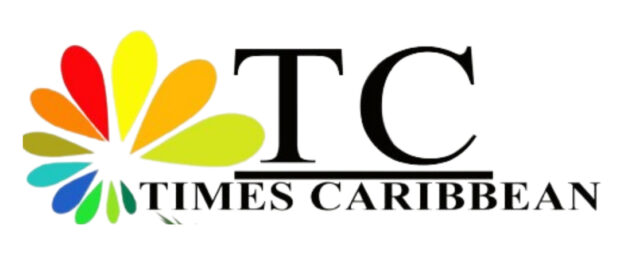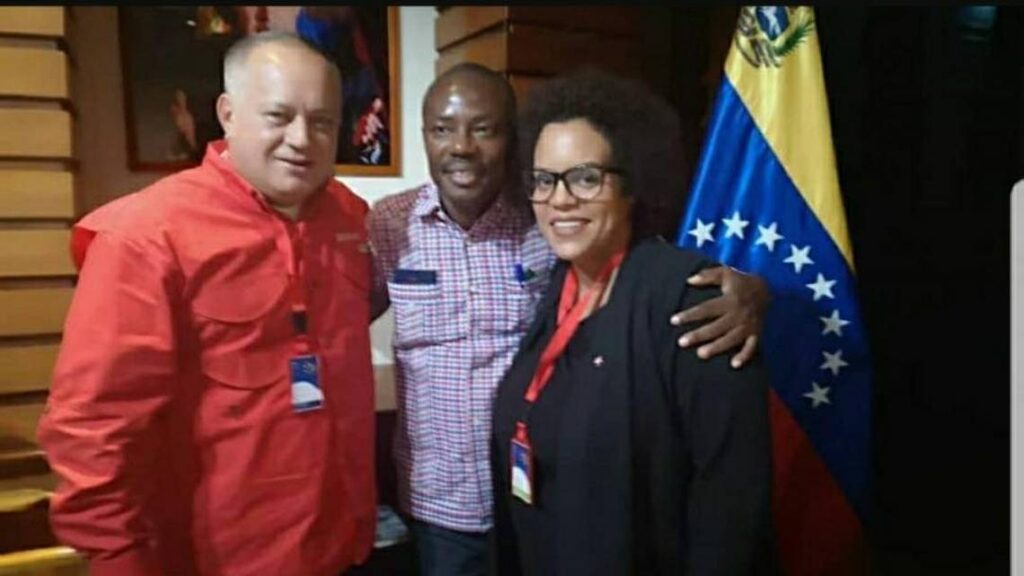An ex-Haiti senator had his U.S. visa canceled while transiting through Miami

Here is why
BY ANTONIO MARIA DELGADO AND JACQUELINE CHARLES UPDATED JANUARY 28, 2022

Former Haitian senator and presumed current presidential candidate Jean-Charles Moïse prides himself on being an opposition leader and leftist ideologue, one who has no problem flaunting in the face of the United States his relationships with some of Latin America’s most controversial leaders. Now his questionable contacts may have cost him his U.S. visa. Multiple sources have cited a visit with the reputed head of a Venezuelan drug cartel and others as the basis for a decision by U.S. authorities Monday to revoke the firebrand Haitian politician’s U.S. visa and ban him from the United States for five years. Moïse, who did not respond to several phone calls and requests from the Miami Herald for comment, confirmed the sanctions during several press conferences this week as he accused the United States of attacking his dignity and dared authorities to come clean about what led to the harsh decision. Although he shares the same last name as assassinated Haitian President Jovanel Moïse, it remains a bit of a mystery whether the two are related. $2 for 2 months Subscribe for unlimited access to our website, app, eEdition and more CLAIM OFFER The saga of Jean-Charles Moïse, who is more popularly known as Moïse Jean-Charles, began Monday when he arrived in Miami with members of a Haitian delegation that had accompanied him over the weekend to Nigeria. As they were transiting through Miami International Airport, the ex-lawmaker was approached by U.S. Customs and Border Protection agents and taken into what he described as a frigidly cold room for questioning. There, he was interrogated about the visit to Nigeria and about a visit with Venezuelan leader Nicolás Maduro, he said. Jean-Charles Moïse with Diosdado Cabello, reputed head of a Venezuelan drug cartel, in an undated photo obtained by the Miami Herald. Sources familiar with the incident told the Herald that while he was being detained Moïse’s smart phone was checked by agents after he attempted to keep it from them. During the check, they found “questionable contacts” and photos of him with key members of the Venezuelan regime. Other sources familiar with Moïse’s visits to Venezuela said during at least one of those trips he met with the regime’s No. 2 man, Diosdado Cabello, the reputed head of a Venezuelan drug cartel. Cabello and Maduro both face drug trafficking charges in the United States, and have bounties on their heads of $10 million and $15 million, respectively. News alerts in your inbox Sign up for email alerts and be the first to know when news breaks. SIGN UP This site is protected by reCAPTCHA and the Google Privacy Policy and Terms of Service apply. Moïse, 54, was returned to Haiti Tuesday morning on an American Airlines flight. A photo of him boarding the flight, wearing a mask a gray suit and red shirt and looking visibly shaken, went viral almost immediately. A CPB officer is in the background of the image. Upon arriving at Toussaint Louverture International Airport, Moïse told waiting reporters that he had been detained by U.S immigration agents and had his mouth swabbed for DNA before being deported and having his U.S. visa canceled along with the issuance of a five-year ban. He received the sanctions, he said, because he had refused to discuss the Nigeria visit and a November 2021 visit with Maduro. Speaking about the matter further at a Wednesday press conference, he accused U.S. immigration agents of violating his human rights, humiliating him and threatening him with prison because of his refusal to cooperate during the eight hours and 15 minutes he was kept inside a freezing room. Jean-Charles Moise enters a plane in Miami en route to Haiti Behind him is a Customs and Border Protections officer. The photo went viral in Haiti. A presumed presidential candidate in Haiti’s yet-to-be-scheduled general elections, he is now using his treatment to rally support and win favor among anti-American elements in Haiti. “Why is it that other leaders have spoken to Maduro and they have never approached them demanding to know what they discussed?” Moïse said. A CBP spokesperson, citing privacy rules, declined to tell the Herald why the Haitian politician was deported and provided a list of more than 60 reasons on why someone holding a U.S. visa may be denied entry into the United States. Any traveling visitor, U.S. citizen or permanent resident can be subjected to a secondary inspection upon entering the United States. It can be random or the result of prior information in the hands of CBP agents. In the case of Moïse, he was flagged. Asked for his telephone, he initially presented a non-smart, analog phone. Agents later tracked down his traveling companions and retrieved his smart phone. As they went through it, his photos and contacts did not help his cause. Among them was a photo with Carolys Helena Pérez González, a former Venezuelan minister for Women and Gender Equality in Maduro’s government who often functions as a troubleshooter and link between the Venezuelan regime and its contacts in Haiti. According to a source, Pérez had arranged a meeting last June in Caracas between Moïse and Cabello. Moïse, who often promotes his trips on social media, had not publicly disclosed the meeting but a photo shared with the Herald shows the two men smiling and grabbing each others firsts. Another photo shows the two men with Pérez standing in front of a Venezuelan flag. According to his Twitter timeline, Jean-Charles Moïse was in Venezuela the week of June 21, about two weeks before the assassination of Jovenel Moïse, whom he publicly regarded as a political nemesis, to attend a celebration of “200 Years of the Carabobo Battle,” which sealed Venezuela’s independence. The United States believes that both Cabello and Maduro run the so-called Suns Cartel, an organization that involves high-ranking regime officials and that controls drug trafficking in Venezuela. In March of 2020, the U.S. Department of Justice indicted Maduro, Cabello and 13 other government officials on drug trafficking charges and placed large bounties on their heads. Venezuela, long a diplomatic foe of the United States, has increasingly become seen as a pit stop for U.S.-bound drug shipments coming out of Colombia, oftentimes winding their way through Haiti or the Dominican Republic. “Appearing in a photo with Diosdado Cabello is the Venezuelan equivalent of being photographed with “El Chapo” Guzmán,” said a U.S. intelligence source monitoring activities in Venezuela, referencing the violent Mexican drug lord Joaquin ‘El Chapo’ Guzmán now serving life in a U.S. federal prison. In his Wednesday press conference, the ex-lawmaker, who has adopted the red and Black Haitian flag of the Duvalier dictatorship and is known for waving a Russian flag during protests, accused the United States of menacing him. While his traveling companions were allowed to go on to Haiti, he was held back and taken to a room where he was “trembling” in the cold. He said officers offered him to make a deal, he said. “They told me that If I collaborate there are sanctions they were going to take against me that they will no longer take,” he said. “They said if I were to tell them what I was discussing with Maduro in the month of November 2021, I won’t have any problems. If I tell them what I was discussing with the Africans, I won’t have any problems. But if I don’t say, there are four sanctions they will take against me.” He then listed the four sanctions, which included the cancellation of his visa, a five-year ban from the United States, deportation and prison. “I made the choice of prison; I made the choice of cutting my visa; I made the choice for them to deport us; I made the choice for them to humiliate us,” he told journalists, adding that he had retained a battery of lawyers to sue the United States to defend his dignity Then he demanded that U.S. authorities “tell us what is hiding behind this.” “It’s not Moïse Jean-Charles who they have done this to. They have done this to the Haitian people,” he said. Michael Wilner, Washington Bureau senior national security correspondent, contributed to this report. This story was originally published January 28, 2022 9:37 AM. JACQUELINE CHARLES 305-376-2616 Jacqueline Charles has reported on Haiti and the English-speaking Caribbean for the Miami Herald for over a decade. A Pulitzer Prize finalist for her coverage of the 2010 Haiti earthquake, she was awarded a 2018 Maria Moors Cabot Prize — the most prestigious award for coverage of the Americas.
Read more at: https://www.miamiherald.com/news/nation-world/world/americas/haiti/article257786483.html#storylink=cpy
Leave a comment
You must be logged in to post a comment.